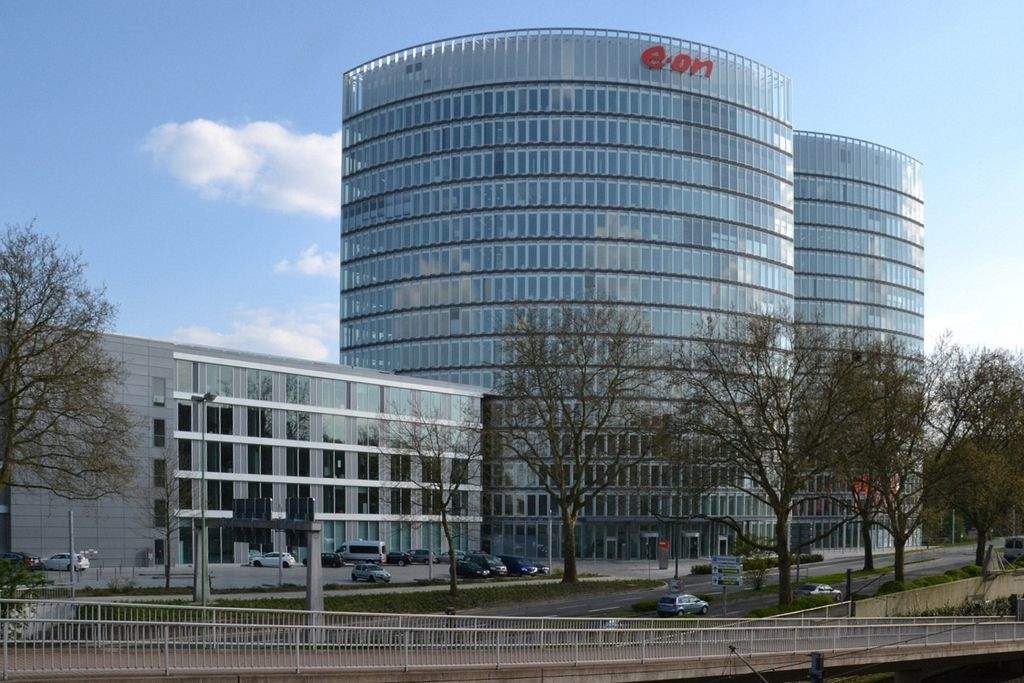E.on has partnered with aluminium producer TRIMET and port cooperation DeltaPort to convert heat from the production of aluminium into a resource-saving energy source in order to supply logistics properties at the Rhine port of Voerde-Emmelsum.

Image: E.ON headquarters in Essen, Germany. Photo: Courtesy of Wiki05/Wikipedia.org.
At the international real estate trade fair EXPO REAL in Munich, E.on, the port cooperation DeltaPort and the aluminium producer TRIMET presented the ‘EcoPort 813’ project.
The low-cost and CO2-neutral energy in the form of heat or cold is intended to create incentives for the settlement of further companies.
In addition, the partners want to make the logistics chain for food climate-friendly. Usually, temperature-controlled containers that land in the seaport by sea-going ship are unloaded in refrigeration centres and then transported on the road to the hinterland.
‘EcoPort 813’ aims to optimize this supply chain ecologically. In the future, refrigerated containers will be transported to the hinterland by inland waterway or rail. The containers can be unloaded at a temperature-controlled distribution centre in the port of Emmelsum, from where they can be distributed by truck. The truck will thus only be used on the last mile.
E.on will contribute the hub of the project: an energy centre with heat recovery. The excess heat from TRIMET’s aluminium production is recycled here. Converted into cold, it can be made available to cooling logistics companies, but also in the form of heat for the manufacturing industry.
The companies receive cold or heat at uniquely low energy costs without polluting the climate with CO2. The plant generates up to 136GWh of usable heat per year. More than 27,000 tons of CO2 can be saved. At the beginning of the year, E.ON initiated a similar project in the port of Dortmund.
Around 300 TRIMET Aluminium SE employees produce 95,000 tons of raw aluminium annually in the Voerder aluminium site. The production processes produce hot air, which TRIMET makes available as a resource.
The partners in the ‘EcoPort 813’ project agree that cooperation projects such as these can achieve important milestones in sustainable port logistics. The number in the project name ‘EcoPort 813’ stands for the Rhine kilometer where the site is located.
Source: Company Press Release
